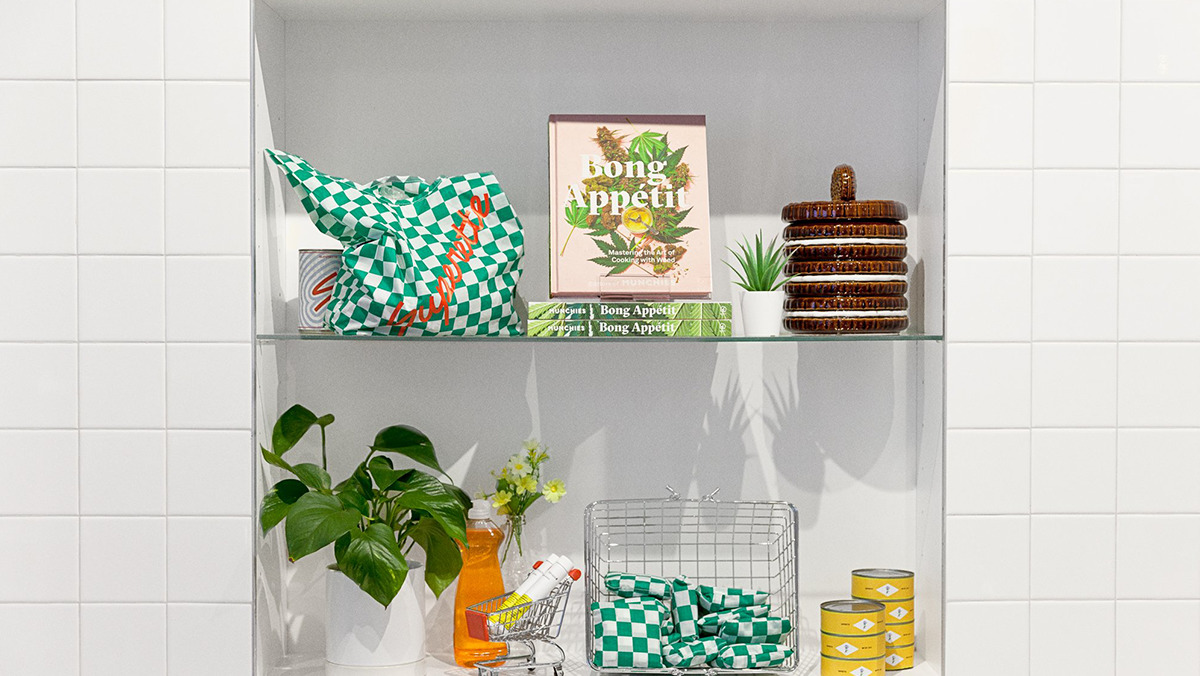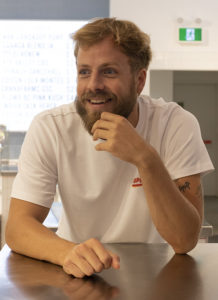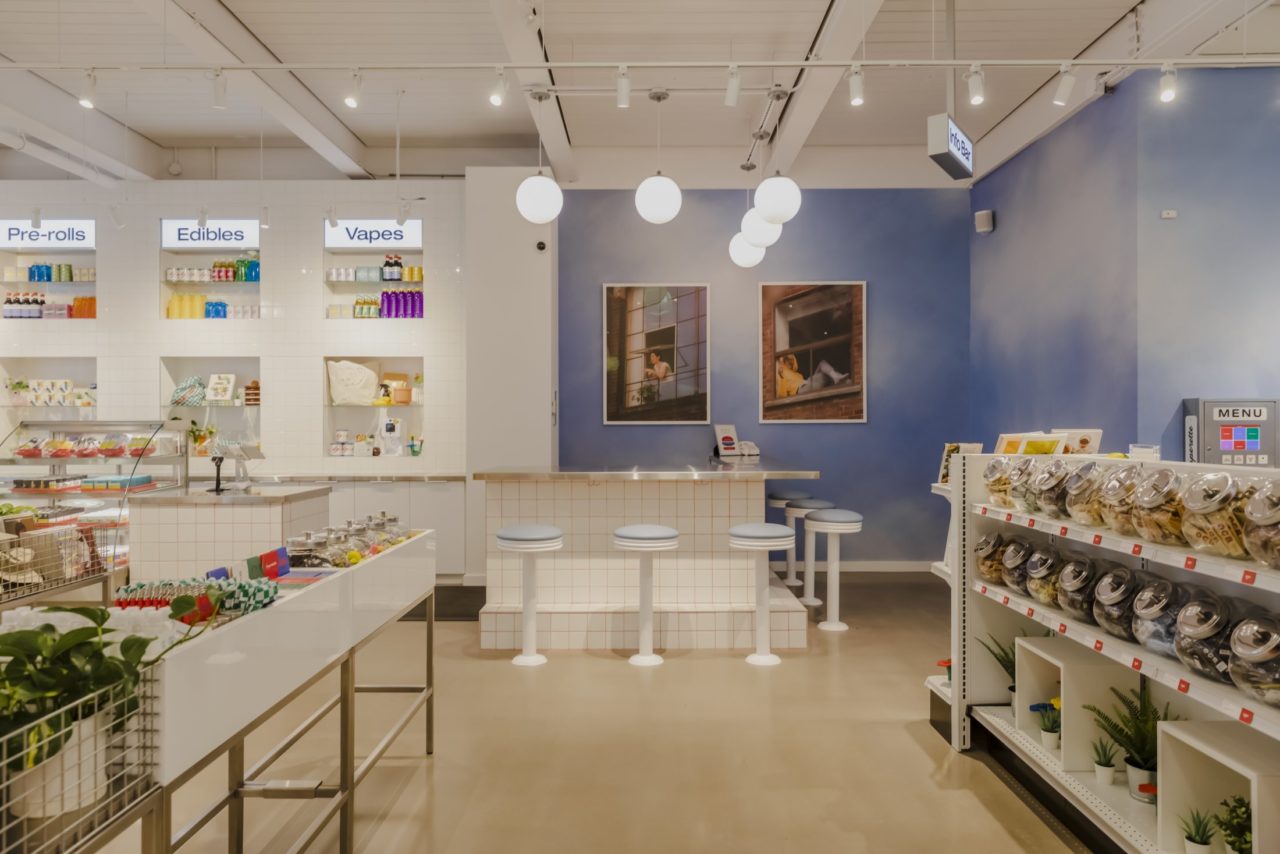
Highly regulated industries are difficult to navigate, especially when it comes to marketing that product and building a brand around it. But what do you do when your product is not only regulated but also taboo?
Cannabis has an official bad reputation and is banned in most of the world. Still, there are countries and cities where business around this controversial plant is flourishing, and some pretty unique brands have been created around it. Superette is one of these brands and they have recently won Gold in Brand Design at 2020’s Clio Cannabis Awards for their immaculate brick-and-mortar (cannabis) store in Toronto, Canada.
Drummond Munro, the “co-mastermind” behind Superette, has spent the last ten years working with some of the top North American retail brands on strategy, design, real estate selection, and international expansion strategies. He is now Superette’s Chief Brand Officer and is committed to rethinking the perceived norms of cannabis retail and continuously pushing the boundaries on design and experiential retail.
Brandingmag sat down with Drummond to talk about the challenges and opportunities in the business of cannabis. Here’s what he has to say:
Brandingmag: A spin-off of our usual opening question – what does Cannabis represent to you?
 Drummond Munro: It represents so many aspects of my lifestyle and the cultures I resonate with, from medicine to recreation. I am just super grateful that I play a small role in how people engage and build a relationship with cannabis.
Drummond Munro: It represents so many aspects of my lifestyle and the cultures I resonate with, from medicine to recreation. I am just super grateful that I play a small role in how people engage and build a relationship with cannabis.
Bm: What’s it like to manage a Cannabis brand? Is it more difficult than others?
DM: Like any other industry or category, it has its nuances, but unlike any other, it is changing and evolving on an almost daily basis. Certain countries are legalizing medical, then recreational, etc. In certain places, it is brand new. In others, it’s been flourishing in different ways for years, so it’s essential to recognize how that all plays together.
Bm: What are the toughest marketing and PR challenges for such an uncommon brand?
DM: We’re limited to what we can post on social media accounts due to varying rules and stigma across platforms. The Canadian government’s marketing regulations add a complex layer as the laws are vague and up for interpretation. A fun lifestyle photo post could be considered an inducement to minors (despite being an age-gated social media account).
The rules also prevent us from showcasing details about products such as images, price, and availability. Public relations is challenging in the area of paid media. Certain publications will not accept any cannabis affliction because of their fear that audiences might view them differently as a brand.
Bm: Would you consider the Cannabis industry to be highly regulated? Why so?
DM: Besides pharmaceuticals and tobacco, I can’t think of another industry that is as regulated as “recreational” cannabis here in Canada – which is ironic given cannabis’s association with culture, brands, and art. I understand them not wanting to mess with the legalization process and ensuring cannabis is marketed to adults only. It’s still the early stages of this new industry, and I hope they will reconsider an update to the regulations this year.
Bm: What do you think is more important for a Cannabis brand to have: a top brand design, a unique experience, or social good involvement?
DM: I think they all play a role with one another. I also feel that, more often than not, companies will strive to be one and not consider all three. Or claim to be all three without ever really being one. I think consumers have come to expect a thoughtfulness from brands that touches all of these things and, more importantly, consider them in everything we do.
Bm: Yes, there are many challenges for a Cannabis brand, but what are the good parts unique to this particular industry?
DM: It’s fast-moving, exciting, and brand new, so we get to create and do things that the world hasn’t seen yet.
Bm: What would be the ultimate partnership or association for a Cannabis brand? Which industry and/or brands, and why?
DM: For us, it wouldn’t be about partnering with a specific brand, although we do have our eyes set on a few. It’s about doing something surprising and unexpected, a way we can delight our customer by giving the Superette treatment to a household name. We’re trying to destigmatize a plant and integrate it into our customers’ everyday lives and routines. If we had to choose a brand, it would be something like Mason Jars or Ziplock, brands that every stoner around the globe has used at one point or another. Expect the unexpected from us.

